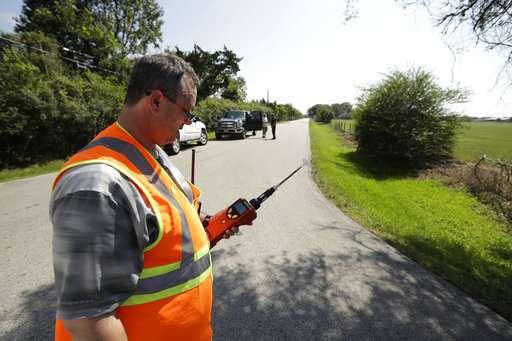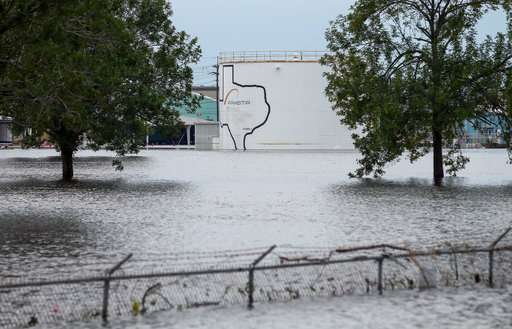Chemicals burning at Texas plant are unstable if not cooled

The chemicals that exploded at a Texas plant are so unstable that they must be kept cool or they can ignite a runaway scenario.
Experts say that's what happened when the Arkema Inc. chemical plant lost power after Harvey engulfed the area in floods. Arkema executive Richard Rennard said the fire was caused by the chemicals degrading because of the lack of refrigeration.
The chemicals that caught fire at the plant outside Houston were organic peroxides, a family of unstable compounds used for making a variety of products, including pharmaceuticals and construction materials.
Those are some of the most reactive chemicals around, which is good for manufacturing, but all too dangerous in massive flooding, said Marco Kaltofen, president of Boston Chemical Data.
"The problem with organic peroxides is they react with themselves. That's why we refrigerate them," said Kaltofen, who is also a nuclear and chemical engineering researcher at Worcester Polytechnic Institute.
Organic peroxides are used in chemical manufacturing to kick-start and keep producing reactions that generate new chemicals.
While they are safe and useful chemicals when handled properly, if it gets too hot or there is some other sparking situation, "at some point it just runs and you can't stop it," said Patrick Dussault, a professor of chemistry at the University of Nebraska in Lincoln. "These can be chain reactions."

Information that Arkema posted online for one of the chemicals says its flashpoint is 97.7 degrees (36.5 degrees Celsius), which is nearly body temperature. It can easily get to 98 degrees in a car or building without power or air conditioning in Houston during the day in August, Kaltofen noted.
Hydrogen peroxide molecules have two carbon atoms and two oxygen atoms. Normally the oxygen atoms are bound to each other. When that bind breaks, the freed oxygen atoms more easily bind with other atoms, which is what is useful in making polymers, Dussault said. But when that process happens, they release energy and heat. And that decomposition then promotes the instability of its neighbors and so on, he explained.
The Texas plant "made exactly the same error that they did at Fukushima," Kaltofen said.
The backup generators at Japan's Fukushima nuclear plant were too low and they got flooded in the tsunami. Similarly, Arkema's backup system proved too prone to extreme flooding, Kaltofen said.
And in both situations once it starts, there's little that can be done safely to stop it, he said.
© 2017 The Associated Press. All rights reserved.


















